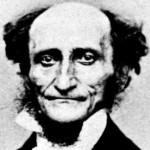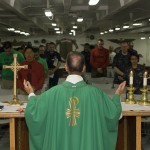An excerpt from a book I’m currently writing:
In the context of active righteousness, Kolb and Arand place a creational view of Christian living over and against theosis, arguing: “Luther opposed both the view of psychological transformation and the view of salvation by ontological transformation (both of which make sense only in a Platonic, spiritualizing frame of reference.”[1] Instead, “Luther rejoiced in his creatureliness. It is a great honor to be called a creature.”[2] The theme of deification in Gerhard and treatments of the unio mystica thus seems to be negated by Kolb and Arand. Contrary to Kolb and Arand, however, historic Lutheran teaching of mystical union, or what I have labeled Christification, is not necessarily in contradistinction to the creational realm in which the Christian lives.[3] One’s union with God does not take one away from creation, but brings one further into creation. The biblical model of theosis is cruciform. As God condescended into the world through the incarnation, so the Christian condescends to the world. Union with God grows, not simply in an other-worldly sphere, but within created reality. Christians model the incarnational life of Christ through serving one another in their vocation. Gerhard connects the unio mystica with life in the world writing: “God has communicated his entire self to you. Communicate also your entire self to your neighbor.”[4] Wingren’s emphasis on the nature of humanity as creatures and their service within the created realm is correct, and is not negated by Christification, but strengthened.
[1] Kolb and Arand, Genius of Luther’s Theology, 48.
[2] Kolb and Arand, Genius of Luther’s Theology, 38.
[3] Kolb and Arand seem to limit union to the unio fidei formalis, noting: “The Christian is thus joined to Christ by a faith that clings to the Word and now accepts that Christ is totally responsible for us…Only in faith are Christ and a human being so joined together, so made one, that in God’s judgment the human person participates in Christ’s righteousness.” Kolb and Arand, Genius of Luther’s Theology, 46.
[4] Gerhard, Sacred Meditations, 120.











